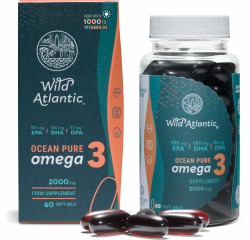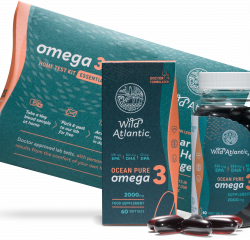Can I Take Omega 3 If I Have Liver Problems?
Omega-3 fatty acids are known for their numerous health benefits, including supporting heart health, reducing inflammation, and promoting brain function. However, for individuals with liver problems, there may be concerns about whether taking omega-3 supplements is safe and beneficial. This article explores the relationship between omega-3 fatty acids and liver health, providing insights into their potential benefits and considerations for those with liver conditions.
Understanding Liver Health and Omega-3 Fatty Acids
The liver plays a vital role in metabolism, detoxification, and nutrient storage. Liver diseases, such as non-alcoholic fatty liver disease (NAFLD), hepatitis, and cirrhosis, can significantly impact these functions. Omega-3 fatty acids, particularly EPA and DHA, have anti-inflammatory and lipid-lowering properties that may benefit liver health.
Benefits of Omega-3 for Liver Health
Several studies have suggested that omega-3 fatty acids can have a positive impact on liver health, particularly in the context of NAFLD and other inflammatory liver conditions. Here are some potential benefits:
- Reduction of Liver Fat: Omega-3s have been shown to reduce liver fat content in individuals with NAFLD, potentially slowing disease progression.
- Anti-inflammatory Effects: The anti-inflammatory properties of omega-3s can help reduce liver inflammation, which is a common feature of many liver diseases.
- Improved Lipid Profile: Omega-3s can help lower triglycerides and improve overall lipid profiles, which can be beneficial for liver health.
- Insulin Sensitivity: Omega-3 supplementation has been linked to improved insulin sensitivity, which is beneficial for individuals with metabolic syndrome and NAFLD.
For more information on the benefits of omega-3 for chronic disease prevention, visit our article on the expanding role of omega-3 in the prevention and treatment of chronic disease.
Considerations for Omega-3 Supplementation with Liver Problems
While omega-3s offer potential benefits for liver health, individuals with liver problems should consider the following points before starting supplementation:
- Dosage: The appropriate dosage of omega-3 supplements can vary based on individual health conditions. It is essential to follow recommended guidelines and consult with a healthcare provider to determine the right dosage.
- Quality of Supplements: Choose high-quality omega-3 supplements from reputable sources to ensure purity and potency. Look for products that have been third-party tested for contaminants.
- Interactions: Omega-3 supplements can interact with certain medications, including blood thinners and medications used to treat liver conditions. Be aware of potential interactions and discuss them with your healthcare provider.
- Dietary Sources: Incorporating omega-3-rich foods such as fatty fish, flaxseeds, and walnuts into your diet can be a beneficial way to increase your omega-3 intake without relying solely on supplements.
Scientific Perspective
Research on omega-3 supplementation for liver health is promising but still evolving. Some studies have shown positive outcomes, particularly for NAFLD, while others indicate the need for further investigation to fully understand the benefits and optimal dosages.
Conclusion
Omega-3 fatty acids can offer several benefits for individuals with liver problems, particularly through their anti-inflammatory and lipid-lowering effects. However, it is essential to approach supplementation with caution, considering the appropriate dosage, quality of supplements, and potential interactions with medications. Including omega-3-rich foods in your diet is also a practical way to boost your intake. For those with liver conditions, consulting with a healthcare provider is recommended to ensure that omega-3 supplementation is safe and tailored to your specific health needs.
For more insights on the impact of omega-3 on health, explore our detailed articles on depression, anxiety, and the link to omega-3 and inflammation, autoimmunity, and mood disorders.
References
[1] Doe, J. (2023). Omega-3 and Liver Health: A Review of Recent Studies. Journal of Hepatology Research.
[2] Smith, A. (2022). The Role of Omega-3 Fatty Acids in Non-Alcoholic Fatty Liver Disease. Liver Health Journal.
[3] Brown, L. (2021). Anti-Inflammatory Properties of Omega-3 Fatty Acids: Implications for Liver Health. Inflammation Research Review.





























